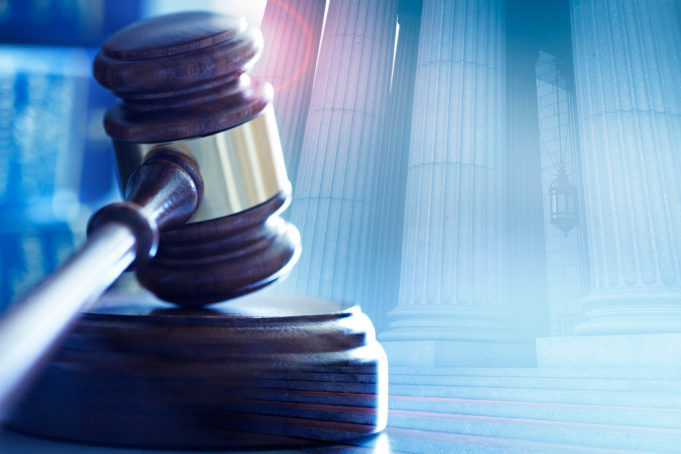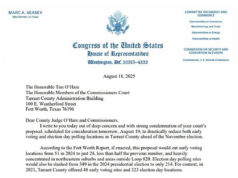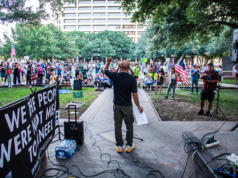In last week’s Static, Annie Spilman of the National Federation of Independent Business unleashed more emotional adjectives — “greedy” and “opportunistic” trial lawyers and “predatory” lawsuits — than facts or rational suggestions.
Spilman seems particularly terrified at the prospect that her organization’s small-business members might be inundated with “frivolous COVID-19-related lawsuits.”
Before retiring, I practiced more than 30 years in Fort Worth, representing mainly defendants, including for-profit and nonprofit employers ranging in size from General Motors to a few doctors practicing together. My other clients included numerous law enforcement officers, from patrolman to chief and sheriff, a few judges, cities and counties. I won some and lost some, as is true of most lawyers who go to court. Rarely I brought to court cases on behalf of fired workers.
Of all those lawsuits, I can count the frivolous ones on one hand with a finger or two to spare. Spilman does not define what she considers “frivolous” lawsuits, but I can assure her they are scarce. In my experience, they are disposed of quickly, long before trial. I was a defendant in one of them, in good company with two federal judges who were co-defendants. The three plaintiffs, representing themselves, sued me because I prevailed on behalf of my client in their previous do-it-yourself civil rights lawsuit. According to their theory, I violated their civil rights by defeating their first case. Another self-represented plaintiff sued a nonprofit for not hiring her when she applied for a job as a registered nurse. She alleged race discrimination. I quickly learned that her resume was totally fictitious. She lacked her claimed nursing license, university degree, and work experience. In another case, the plaintiffs sued a federal judge, my client, for allegedly browbeating them into settling, insisting that if they had been allowed to go to trial, they would have won and the jury’s verdict would have been far more generous than the settlement. Their frivolous lawyer wasted his and everyone else’s time because he overlooked the entirely justified doctrine of absolute judicial immunity, which protects judges doing their job.
Spilman overlooks the fact that most plaintiffs’ lawyers and their clients agree at the outset to a contingent fee. Even a “greedy” trial lawyer can do the math. The bottom line is that 40% of zero is zero. What is the incentive to file a lawsuit wholly lacking in actual or legal merit? Defendants are unlikely to pay a “nuisance” amount to get rid of a frivolous lawsuit, just as it is foolish to feed a stray cat in hopes that it will move on. As for the pro se (acting for themselves) plaintiffs, who might have been declined by an “opportunistic” but sensible lawyer, Spilman perhaps overlooks the Bill of Rights in the Texas Constitution, which in part guarantees that “all courts shall be open [to] every person.”
Spilman, who is not listed as a Texas lawyer, advocates stringent sanctions against lawyers who bring what she considers frivolous virus-related lawsuits. She seems unaware that Texas and federal judges are armed with a formidable arsenal of sanctions to punish those rare lawyers and clients as well as pro se plaintiffs. Federal judges may sanction not just a lawyer who brings a frivolous lawsuit but also his or her law firm. That’s a powerful incentive for senior lawyers in a firm to discourage a colleague from starting half-baked litigation in hopes they can, as Spilman says, “exploit the pandemic for financial gain.” — Donald Buckman
Fort Worthian Donald Buckman is retired as both a lawyer and U.S. Army colonel.
The Weekly welcomes submissions from all political persuasions. Please email Editor Anthony Mariani at anthony@fwweekly.com.












